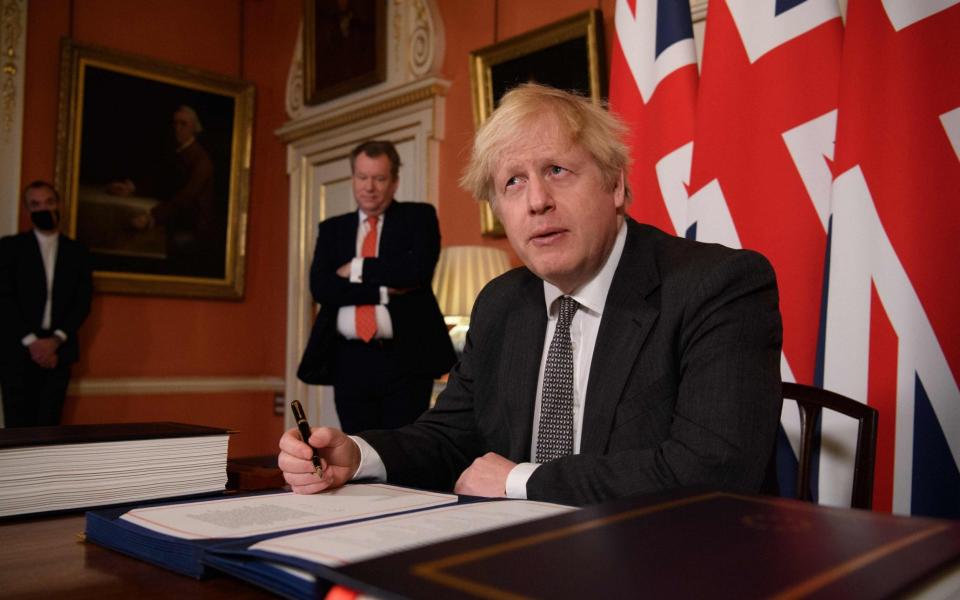EU mulls retaliation against British exports and City over UK unilateral action in Northern Ireland

Brussels could hit Britain with legal action, suspend the trade deal with the UK and block the City of London from the Single Market in retaliation for Boris Johnson's unilateral delaying of the implementation of the Northern Ireland Protocol.
Mairead McGuinness, the EU financial services commissioner, said it was important to “send a message” to Britain about Brexit, as the fall-out from yesterday’s announcement that Britain would delay grace periods on checks on GB food imports to Northern Ireland continued.
Simon Coveney, Ireland’s foreign minister, said the EU was negotiating with a “frustrating” partner “it simply couldn’t trust” and was being forced to resort to legal action becuase Britain had violated the terms of the Brexit agreement.
“If the UK cannot simply be trusted because they take unilateral action in an unexpected way without negotiation, well then the British government leaves the EU with no option and that is not where we want to be," he told the RTE broadcaster.
EU officials are mulling bringing lawsuits against the UK in the European Court of Justice, which retains jurisdiction over the Protocol. The commission last night accused the UK of threatening to break international law for the second time, referring to earlier threats to override the Withdrawal Agreement.
The European Commission is considering triggering enforcement measures in the Withdrawal Agreement and the UK-EU trade deal.
If Britain ignores the ruling of an arbitration panel, Brussels could suspend parts of the newly minted trade agreement, leaving British exports to the EU potentially facing tariffs.
Such retaliation must be proportionate to the offence, which in the case of supermarket supplies to Northern Ireland, is likely to be limited.
Ms McGuinness warned the unilateral move could have ramifications for ongoing “equivalence” negotiations aimed at granting UK financial services access to the EU’s Single Market.
"Things like that don't help build trust," the Irish politician said at a Politico event in Brussels.
Brussels has so far only granted equivalence to central securities depositories and clearing houses, which it sees as vital for EU financial stability. The UK granted EU firms equivalence in a slew of sectors in November last year.
Britain has applied for 28 sectors to be granted equivalence but the commission has said it will only grant it once it has details of the UK’s future plans to diverge from EU rules.
The commission has used equivalence as a political weapon in the past; freezing Swiss stock exchanges out of the Single Market in a bid to force Bern to the negotiating table over a new treaty.
MEPs warned that they could refuse to ratify the provisionally applied trade deal with London, which will be subject to a European Parliament vote by the end of April.
Christophe Hansen, a lead MEP on Brexit and the trade deal, tweeted, “if this is David Frost’s idea of showing that he is back to his old games, he should be mindful of the fact that the European Parliament has not ratified the [trade deal] yet.”
That would be a nuclear option because it would force a damaging no deal Brexit, which would also hurt European businesses.
In Northern Ireland, loyalist paramilitary organisations told Boris Johnson they are withdrawing support for the Good Friday Agreement in protest over the arrangements for post-Brexit trade in Northern Ireland.
The outlawed groups said they were temporarily withdrawing their backing of the peace agreement amid mounting concerns about Northern Ireland Protocol.

 Yahoo News
Yahoo News 